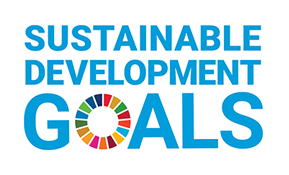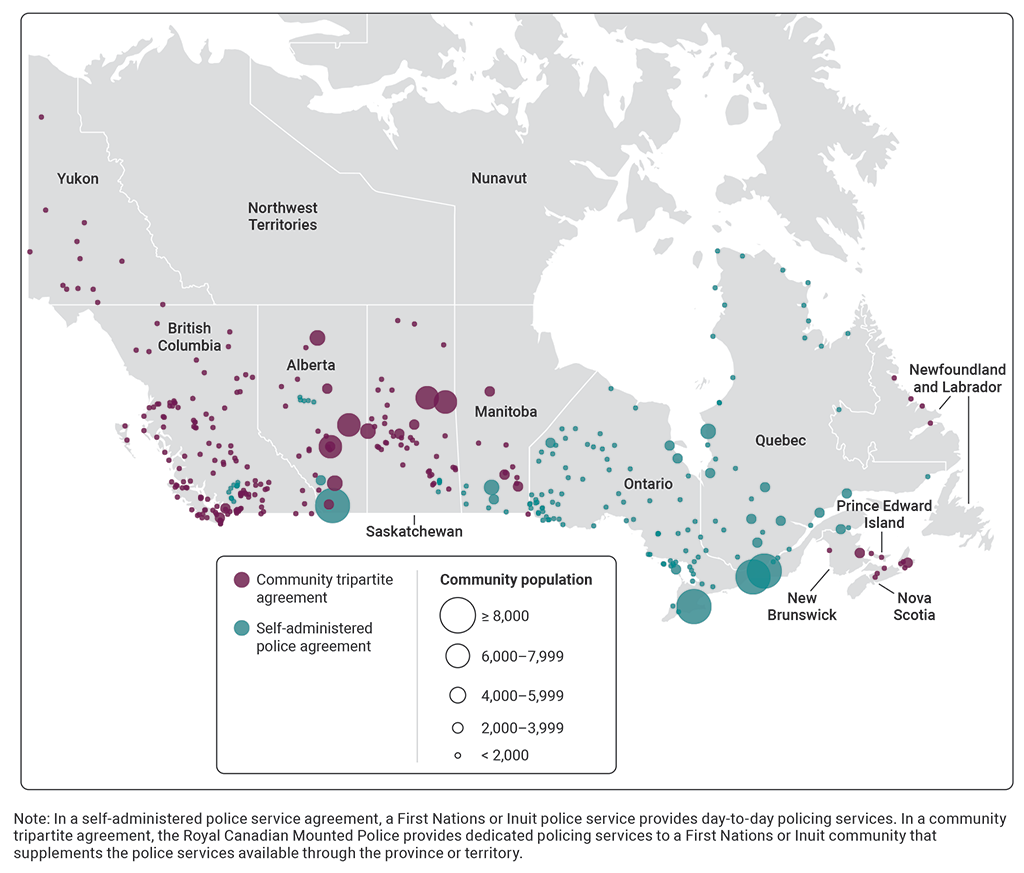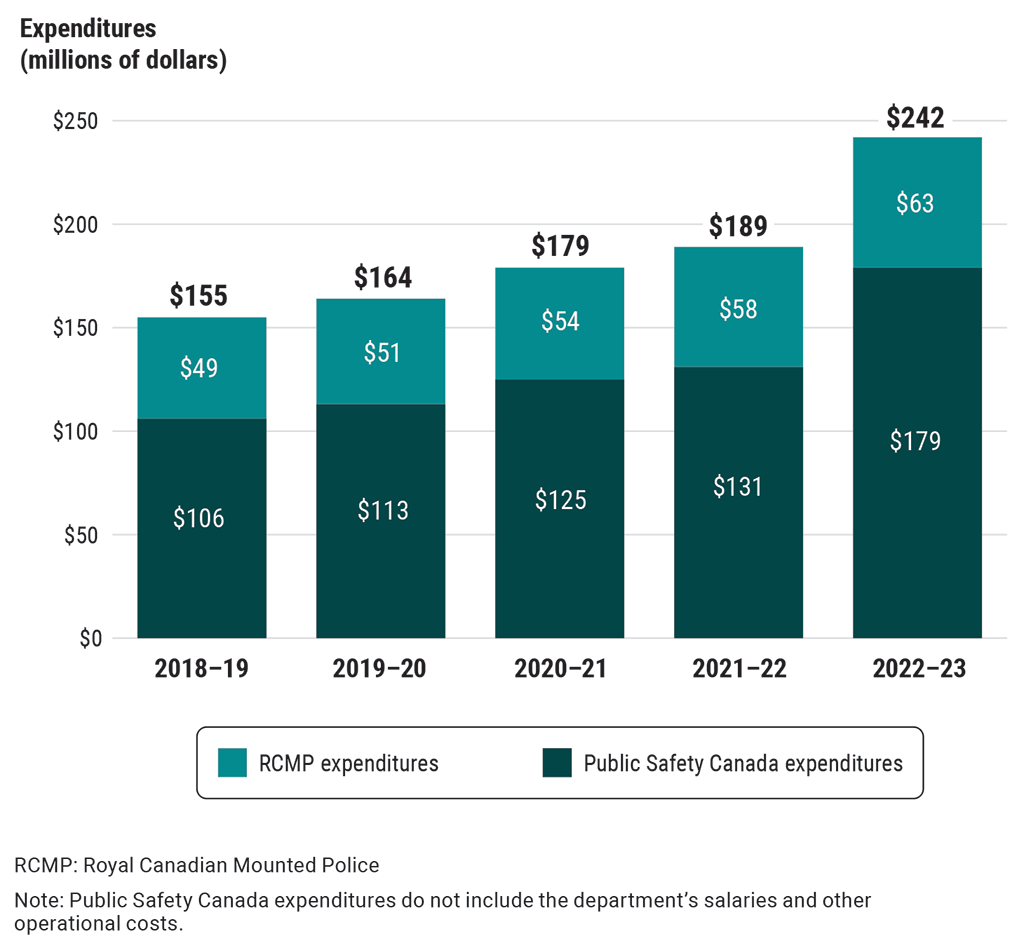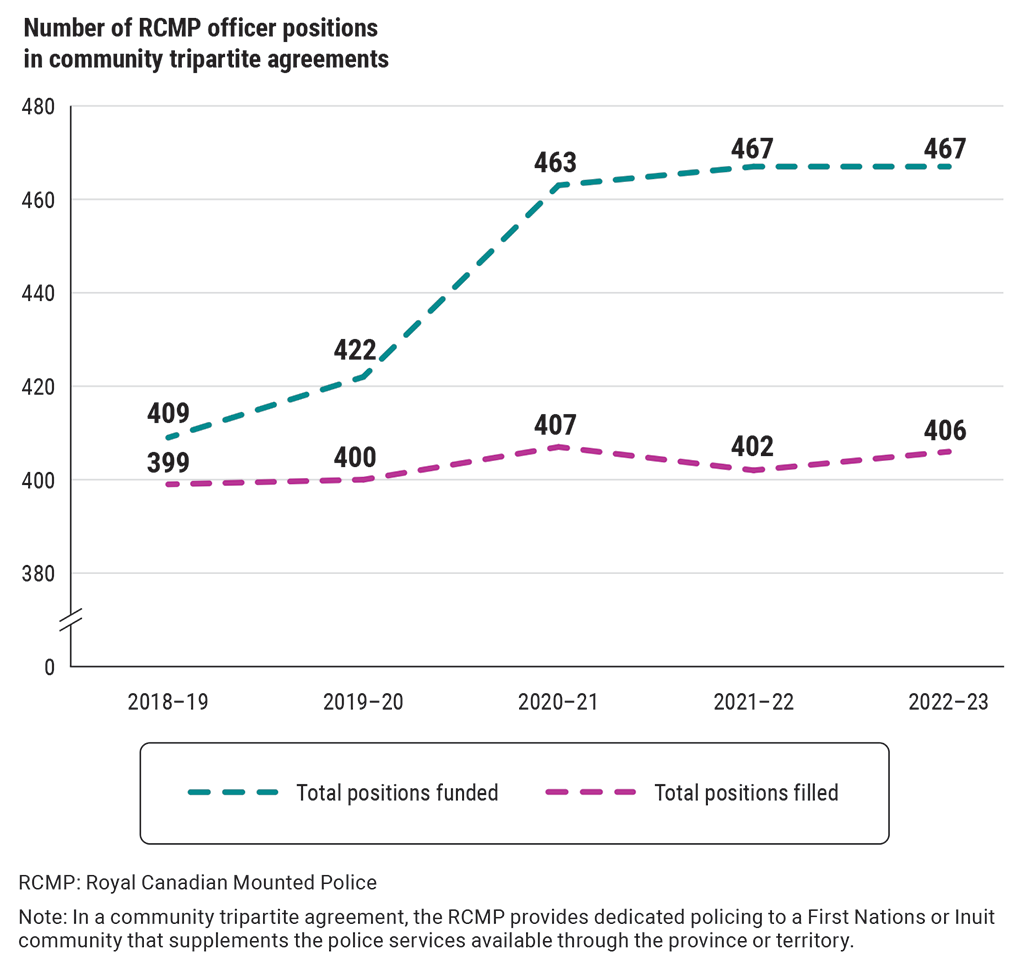2024 Reports 2 to 4 of the Auditor General of Canada to the Parliament of Canada
Report 3—First Nations and Inuit Policing Program
At a Glance
The First Nations and Inuit Policing Program is a cost‑shared program between the federal government and provinces or territories intended to contribute to the improvement of the safety and security in First Nations and Inuit communities. Overall, Public Safety Canada, as the lead in managing and overseeing the program, did not work in partnership with Indigenous communities to provide equitable access to policing services that were tailored to their needs. Under the program, the Royal Canadian Mounted Police (RCMP) can be a service provider. We found that when this was the case, the RCMP did not work in partnership with Indigenous communities to deliver dedicated and tailored policing services that supplemented those provided under agreements with their respective province or territory.
Although funding of the First Nations and Inuit Policing Program has increased significantly since our last audit in 2014, we again found critical shortcomings in its management. Funds allocated to the program are going unspent, which is concerning in the context of a program intended to support the safety of Indigenous communities—we found that $13 million of program funds related to the 2022–23 fiscal year went unspent. As of October 2023, Public Safety Canada was at risk of not disbursing over $45 million of funds for the 2023–24 fiscal year.
In its management of the program, Public Safety Canada did not have an approach to allocate funds equitably to communities. The department told us that it relied on the provinces’ or territories’ readiness to fund their share of the program and on the past funding received by communities to determine the amounts allocated. We also found a lack of consistent engagement and partnership with communities by the department.
We found that the RCMP did not consistently meet the terms of the community tripartite agreements. For example, in our sample of 26 communities served by the RCMP under the program, we found that only 38% of these communities were served by RCMP detachments that noted that their officers could spend 100% of their time dedicated to the community as required. We also found that because of staffing shortages over the past 5 years, the RCMP has been unable to fully staff the positions for which it receives funding under the program’s agreements, leaving First Nations and Inuit communities underserved.
Neither Public Safety Canada nor the RCMP collected sufficient information or analyzed the information collected to identify whether requirements set out in policing agreements were being met and whether the program was achieving its intended results. It is important to monitor and analyze data not only to meet the communities’ security and safety needs but also to support the self‑determination of communities. Public Safety Canada’s poor performance measurement is a gap we also identified in 2014.
By not fulfilling some of their responsibilities under the program, Public Safety Canada’s and the RCMP’s actions are not aligned with building trust with First Nations and Inuit communities and with the federal government’s commitment to truth and reconciliation.
Key facts and findings
- The First Nations and Inuit Policing Program was created in 1991 and updated in 1996. The program’s policy sets out to provide First Nations and Inuit communities access to police services that were professional, effective, culturally appropriate, and accountable to the communities they served.
- According to Indigenous Services Canada and Crown-Indigenous Relations and Northern Affairs Canada, in 2021, there were approximately 680 First Nations and Inuit communities in Canada. Public Safety Canada data indicates that as of the 2020–21 fiscal year, the program had 36 self‑administered police service agreements, which covered 155 communities, and 140 community tripartite agreements, which covered 230 communities.
- There have been reports, calls for justice, human rights complaints, and litigation highlighting concerns and challenges associated with the First Nations and Inuit Policing Program.
- In 2021, additional funding of more than $500 million was announced for Public Safety Canada to stabilize and expand the program, but limited expansion was achieved.
- The RCMP is responsible for assigning dedicated officers to the First Nations and Inuit communities under the First Nations and Inuit Policing Program in addition to the provincial and territorial policing services provided under separate contracts.
- The RCMP was not able to fully staff positions funded by the program. In 2022–23, 61 funded positions in community tripartite agreements remained vacant.
Why we did this audit
- Many existing policing systems in Canada were introduced in Indigenous communities through colonialization, ensuring that Indigenous communities receive policing services that recognize and respect their culture, history, and rights is essential.
- Access to appropriate and culturally responsive policing services provided through the First Nations and Inuit Policing Program is integral to promoting the safety and well-being of Indigenous communities and supporting self-determination and reconciliation.
- First Nations and Inuit Policing Program’s purpose is to provide communities with policing services that are dedicated and responsive to First Nations and Inuit communities’ needs.
Highlights of our recommendations
- Given the long-standing issues with the First Nations and Inuit Policing Program, and given the federal government’s commitment to truth and reconciliation, Public Safety Canada should work with First Nations, Inuit communities, the provinces and territories, and the RCMP to develop and implement a renewed approach to the program.
- Public Safety Canada and the RCMP, in collaboration with First Nations and Inuit communities and with provinces and territories, should collaborate before new and renewed community tripartite agreements are signed to determine what is possible to offer to communities on the basis of resource capacity.
- The RCMP should develop and implement a national strategy to address staffing shortages in community tripartite positions in order to ensure that RCMP officers assigned to First Nations and Inuit communities are able to deliver on their responsibilities under the program. As part of this, the RCMP should consult with First Nations and Inuit communities and with Public Safety Canada to understand the interest in the program, community needs, and trends.
Please see the full report to read our complete findings, analysis, recommendations and the audited organizations’ responses.




The 2019 Final Report of the National Inquiry Into Missing and Murdered Indigenous Women and Girls called on the federal government to gather distinction-based data (how each First Nations and Inuit community is different) and intersectional data (how aspects of identity overlap to create and deepen discrimination and inequalities) about Indigenous women girls, and 2‑spirit, lesbian, gay, bisexual, transgender, queer, intersex, and additional sexually and gender diverse (2SLGBTQI+) people. By not gathering such data, Public Safety Canada could not examine whether the program was reducing the inequities faced by these groups. The department was also missing the opportunity to contribute to advancing the United Nations’ Sustainable Development Goal 5 (Gender Equality), Goal 10 (Reduced Inequalities), and Goal 16 (Peace, Justice and Strong Institutions).
Visit our Sustainable Development page to learn more about sustainable development and the Office of the Auditor General of CanadaOAG.
Exhibit highlights
Community tripartite agreements and self‑administered police service agreements in Canada

Source: Based on information from Public Safety Canada
Text version
This map shows how community tripartite agreements and self‑administered police service agreements are distributed across Canada. The size of community populations are also shown.
In a self‑administered police service agreement, a First Nations or Inuit police service provides day‑to‑day policing services. In a community tripartite agreement, the Royal Canadian Mounted Police provides dedicated policing services to a First Nations or Inuit community that supplements the police services available through the province or territory.
Community tripartite agreements are mostly found in British Columbia, the Prairie provinces, the Atlantic provinces, and Yukon, while self‑administered police service agreements are mostly found in Ontario and Quebec. British Columbia and the Prairie provinces also show some communities with self‑administered police service agreements.
There are no agreements found in the Northwest Territories and Nunavut.
Most community populations are fewer than 2,000 people. However, some provinces also have larger communities as follows:
- British Columbia, the Prairie provinces, Ontario, Quebec, New Brunswick, and Nova Scotia also have community populations of between 2,000 and 3,999 people.
- The Prairie provinces and Quebec also have community populations of between 4,000 and 5,999 people.
- Alberta and Saskatchewan also have community populations of between 6,000 and 7,999 people.
- Alberta, Ontario, and Quebec also have community populations of 8,000 or more people.
New federal funding announced for the First Nations and Inuit Policing Program in 2018 and 2021
| Year | New program funding |
|---|---|
|
2018 |
|
|
2021 |
|
Source: Publicly available information
Public Safety Canada and the RCMP expenditures for the First Nations and Inuit Policing Program, 2018–19 to 2022–23

Source: Based on information from Public Safety Canada and the RCMP
Text version
This bar chart shows Public Safety Canada and Royal Canadian Mounted Police, or RCMP, expenditures for the First Nations and Inuit Policing Program for the 2018–19 to 2022–23 fiscal years. The expenditures are as follows.
| Fiscal year | RCMP expenditures | Public Safety Canada expenditures | Total expenditures |
|---|---|---|---|
| 2018–19 | $49 million | $106 million | $155 million |
| 2019–20 | $51 million | $113 million | $164 million |
| 2020–21 | $54 million | $125 million | $179 million |
| 2021–22 | $58 million | $131 million | $189 million |
| 2022–23 | $63 million | $179 million | $242 million |
Note: Public Safety Canada expenditures do not include the department’s salaries and other operational costs.
The RCMP received community tripartite agreement funding for more officer positions than it could fill from 2018–19 to 2022–23

Source: Based on information from RCMP year‑end report
Text version
This line chart shows the number of Royal Canadian Mounted Police, or RCMP, officer positions funded and filled in community tripartite agreements for the 2018–19 to 2022–23 fiscal years. For each year of the period, the total number of positions funded was always more than the total number of positions filled. The numbers are as follows.
| Fiscal year | Total number of positions funded | Total number of positions filled |
|---|---|---|
| 2018–19 | 409 | 399 |
| 2019–20 | 422 | 400 |
| 2020–21 | 463 | 407 |
| 2021–22 | 467 | 402 |
| 2022–23 | 467 | 406 |
Note: In a community tripartite agreement, the RCMP provides dedicated policing to a First Nations or Inuit community that supplements the police services available through the province or territory.
Infographic

Text version
First Nations and Inuit Policing Program
The First Nations and Inuit Policing Program is a cost-shared program between the federal government and provinces or territories intended to contribute to the improvement of the safety and security in First Nations and Inuit communities.
Highlights
In 1991, the First Nations and Inuit Policing Program was created.
There are about 680 First Nations and Inuit communities in Canada.
The number of communities covered by the 2 main types of agreements under the program is 385.
Cost-shared program
The costs are shared between the federal government (52%) and provinces or territories (48%).
Two main types of police service agreements
There are 36 self‑administered agreements covering 155 communities. A First Nations or Inuit police service provides day‑to‑day policing.
There are 140 community tripartite agreements covering 230 communities. The Royal Canadian Mounted PoliceRCMP provides dedicated policing to communities that supplements services provided by a province or territory.
Public Safety Canada poorly managed the program
There was poor financial management oversight, and there was a limited expansion of the program despite more funding.
In the 2022–23 fiscal year, $13 million went unspent.
The RCMP was not able to fully staff positions funded by the program
Sixty-one out of 467 funded positions in community tripartite agreements remained vacant in the 2022–23 fiscal year.
By not fulfilling some of their responsibilities under the program, Public Safety Canada’s and the RCMP’s actions are not aligned with building trust with First Nations and Inuit communities and with the federal government’s commitment to truth and reconciliation.
Related information
Tabling date
- 19 March 2024
Related audits
- 2024 Reports of the Auditor General of Canada to the Parliament of Canada
Report 2—Housing in First Nations Communities - 2022 Reports of the Auditor General of Canada to the Parliament of Canada
Report 8—Emergency Management in First Nations Communities—Indigenous Services Canada
